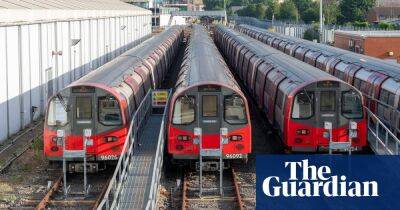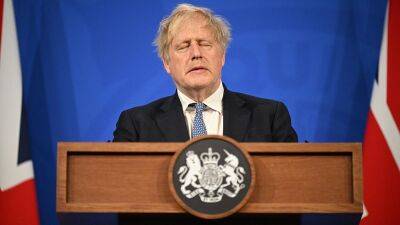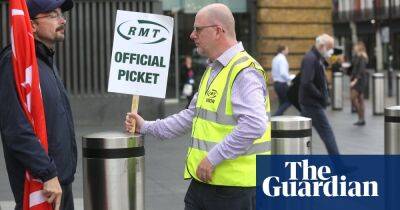Johnson backs plans to close ticket offices as fresh rail strike talks loom
Talks were set to resume on Monday between the RMT and rail bosses, with the union’s national executive committee mulling further strike dates as the prime minister backed plans to close ticket offices.
Services started returning to normal after a later start on Sunday due to the last of three 24-hour national strikes by workers at Network Rail and 13 train operating companies on Saturday.
More walkouts could be called for late July. An RMT spokesperson said the union would “evaluate and look to the next phase of the campaign”.
Speaking ahead of the G7 summit in Germany, Boris Johnson, said that to justify the money spent on the railways, the travelling public and the taxpayer are going to want to see reform and improvement in the way the railways run and there could not be “business as usual”.
He told ITV News: “I can’t responsibly tell them that we’re just going to continue with business as usual, with the same old systems of ticket offices that are barely used, or sell one ticket every hour.”
The Department for Transport has rejected TUC claims that the government had misled the public over its role in the dispute.
Legal opinion obtained by the TUC from QC Michael Ford said that the transport secretary has “very extensive powers” over what can be agreed between rail operators and unions, and “very significant contractual power” to direct how disputes are handled.
In Ford’s legal opinion, the contractual provisions binding train companies mean they “do not have freedom to negotiate the matters which have given rise to the current dispute”.
TUC general secretary, Frances O’Grady, said: “We always believed that Conservative ministers had the power to pull the train companies’ strings, behind the scenes. And this legal opinion on
Read more on theguardian.com





















